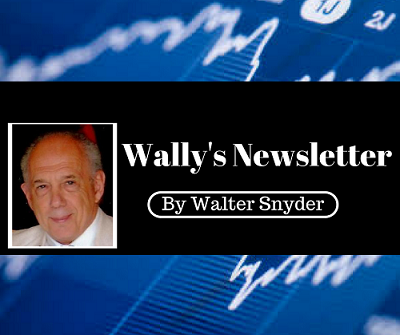Debt and Petrodollars

While the stock market seems to be hiccupping and frightening the bulls, the turmoil in Saudi Arabia has attracted the notice of the financial world because the agreement between Saudi Arabia and the US regarding the use of the dollar as the preferred currency for oil transactions may be coming to an end or at least about to be changed significantly. The rapprochement with China and Russia has received widespread publicity, and MBS, the Crown Prince, is bent on bringing change and progress to the Kingdom. Allowing women to drive provided that they are accompanied by a family member is revolutionary for the Middle East country. One can therefore assume that MBS is serious about his undertaking to bring the future closer and establish a new modern city in the desert.
It is clear, however, that MSB has so far not been particularly successful in his efforts to stymie Iranian ambitions to become a major player in the area. The war in Yemen is going poorly for Saudi Arabia as the Houthis, supplied with arms by Teheran, have not been subdued. The rapprochement with Israel that should help to counter Hezbollah influence in Lebanon is a shaky alliance at best. Assad has survived in Syria despite support for the jihadists. The Turks have invaded Syria to ensure that no autonomous Kurdish state comes into being in the northern part of Syria. The Iranian militias in Syria and Iraq may become permanent fixtures.
Such a complicated situation is in itself daunting enough without engineering a countercoup in Riyadh. It remains to be seen if MBS will be able to maintain his position as Minister of Everything if some tribes decide that he has gone too far in upsetting the delicate equilibrium that has helped the Kingdom to flourish for decades. This is particularly important if the petrodollar agreement is suspended at least partially in favor of a petrorenminbi. The Chinese are working to set up their own crude oil market. This will come into effect soon enough and will result in a strong reduction in the demand for US dollars.
The IMF will probably also readjust the weighting of various currencies according to the GDP of major countries, and that will certainly contribute to a weakening of the US dollar even if the Fed raises the basic rate by another 25 bps in December. The effect of all this on the dollar will be increased by the great debt debate in Congress that will start in December and continue into January. The question then arises as to who is going to buy all the new American debt if the Fed intends to carry on with QT. The Treasuries market might become problematic.
Walter Snyder
info@swissfinancialconsulting.ch
Disclaimer This Newsletter has been prepared by WWS Swiss Financial Consulting SA (the company). Even though every effort has been taken to ensure the accuracy of the content of the Newsletter, there is absolutely no guarantee that the information contained in it is correct, up-to-date, accurate or otherwise applicable. It is not intended as a solicitation, invitation or recommendation for the purchase or sale of any investment fund or product or security or financial instrument or to participate in any particular trading strategy or banking product in any jurisdiction. It is not to be distributed in any country or area where it is legally prohibited. No liability whatsoever is or will be assumed by the company for any damage, loss or negative result of any sort ensuing from following views expressed and contained in the Newsletter. Investors themselves assume the full risk for any decisions that they take (caveat emptor). The Newsletter may not be reproduced or published by anyone anywhere in any way or form without the express written permission of the company.

